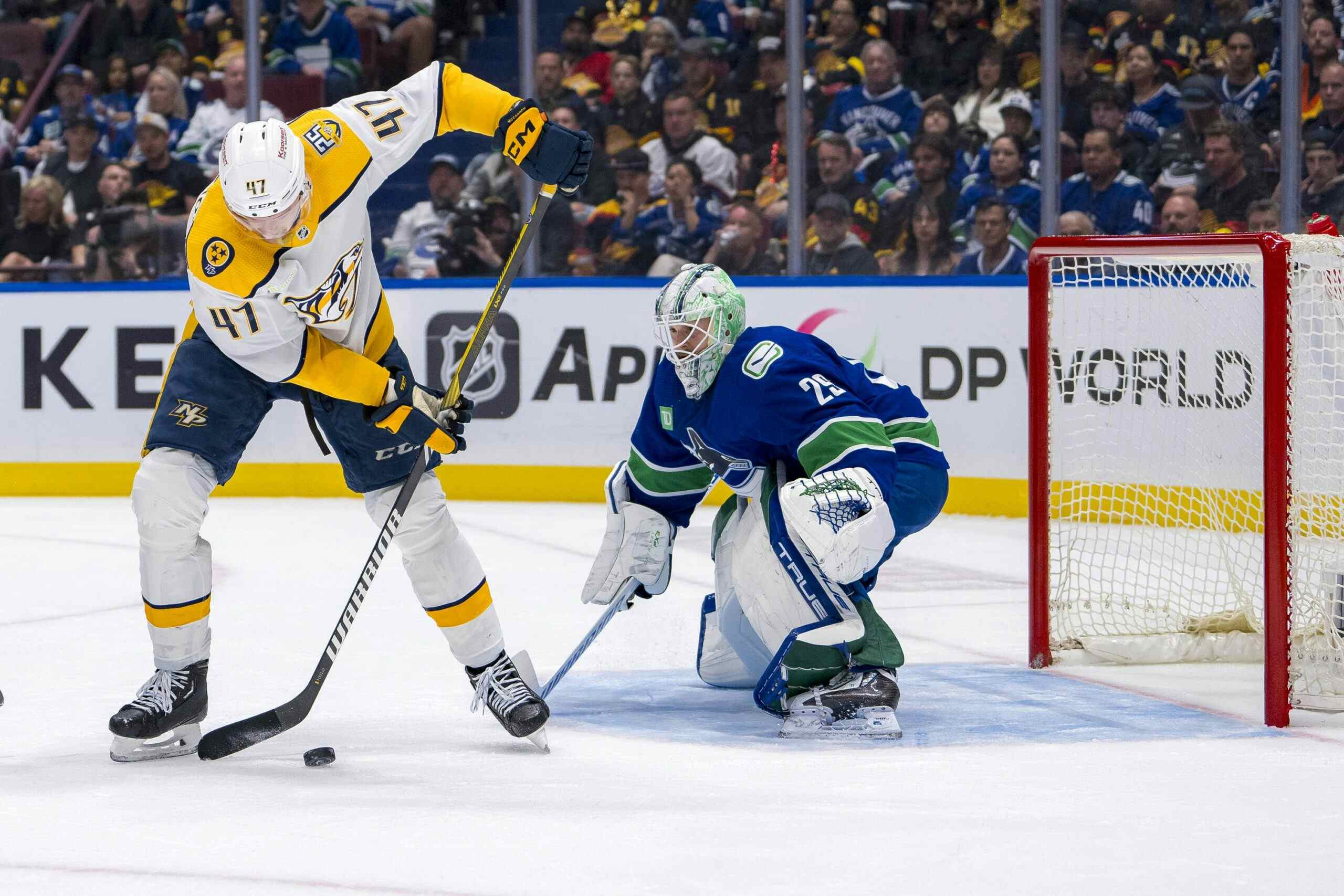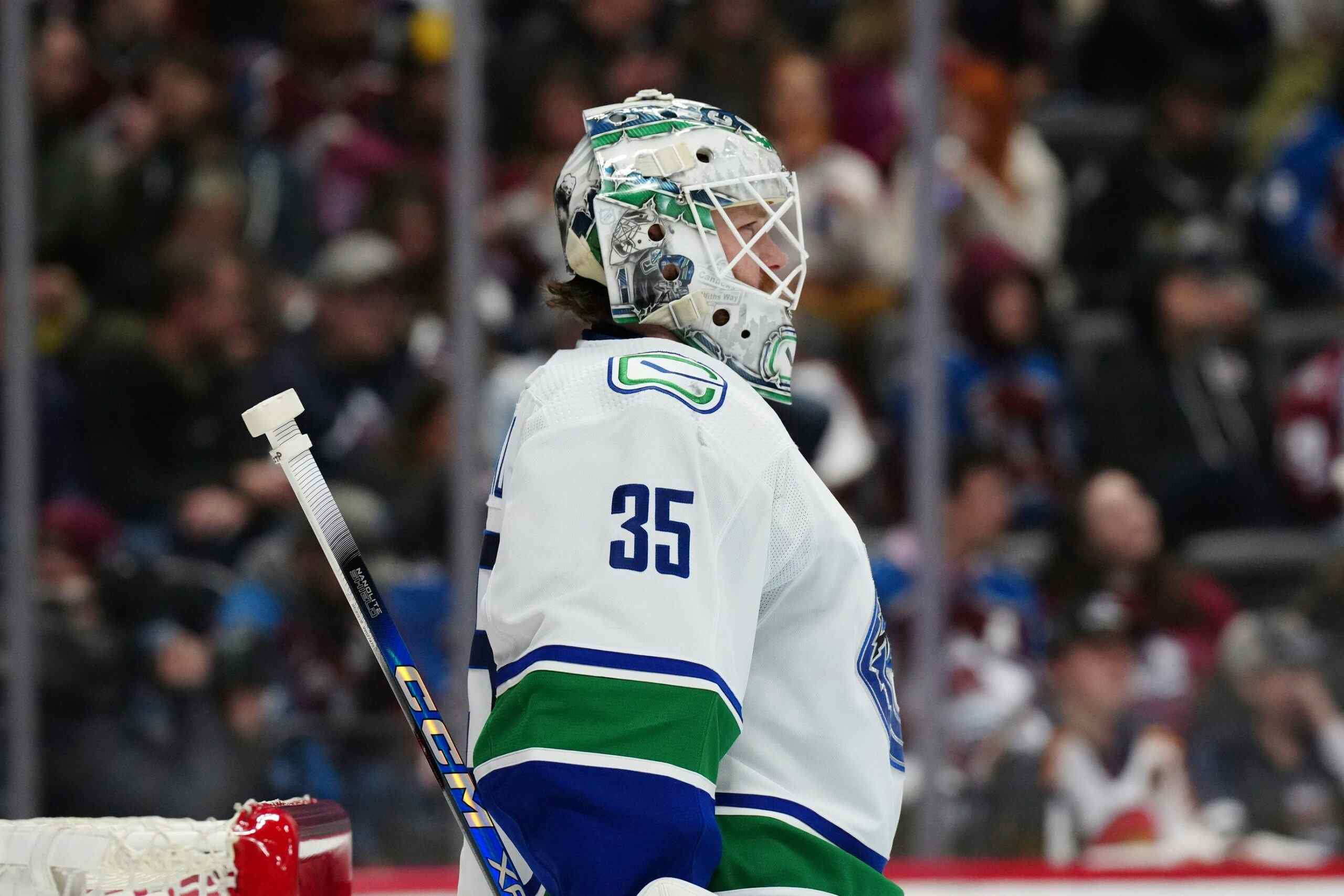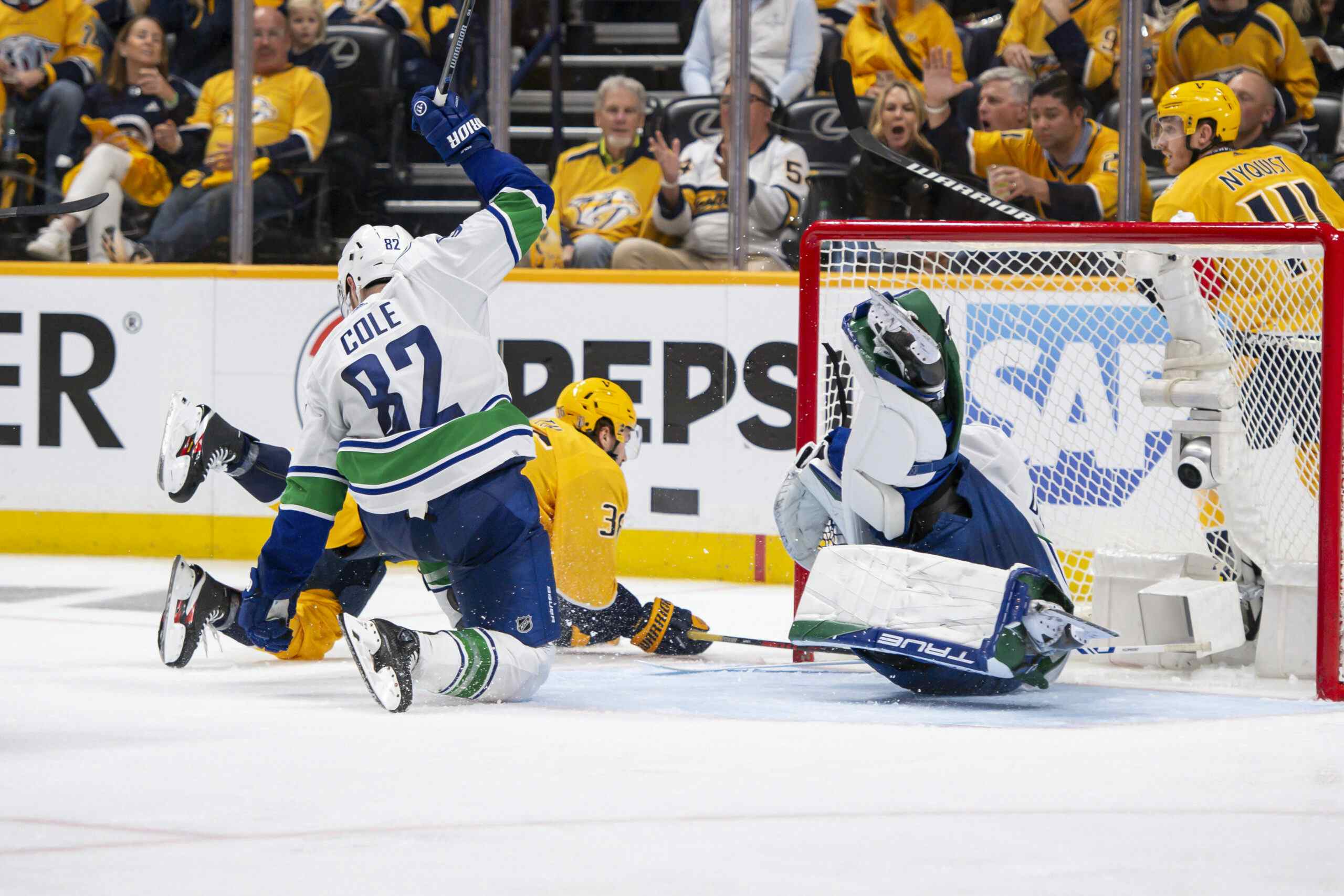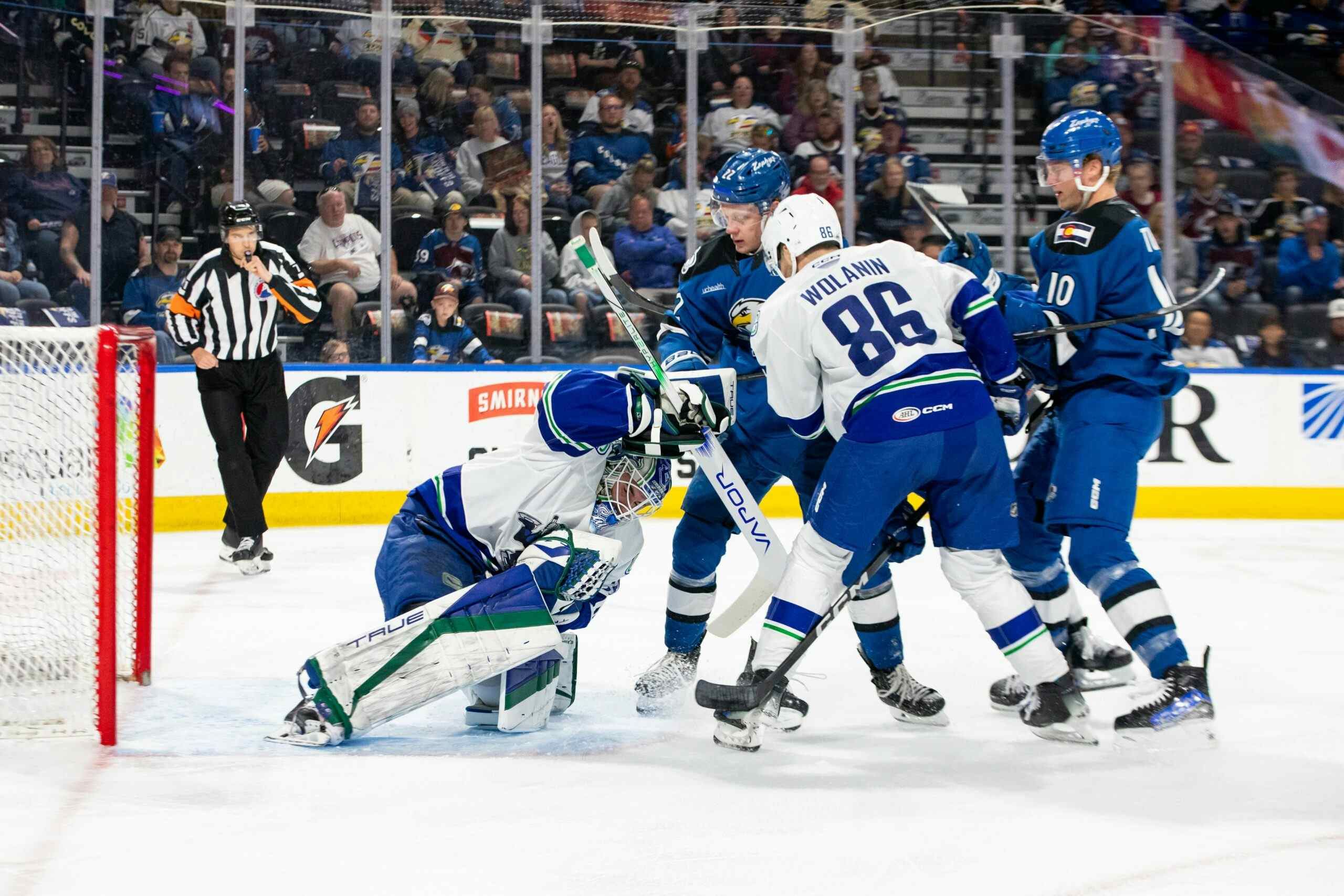If Eddie Lack was the answer, then you asked the wrong question
By Cam Charron
10 years ago
The following scene took place inside John Tortorella’s head Saturday afternoon:
Which goaltender is playing better right now? Eddie Lack or Roberto Luongo?
Which goaltender is in better game shape right now? Eddie Lack or Roberto Luongo?
From that context, it made all the sense in the world to start Eddie Lack at the Heritage Classic. Don’t get me wrong, I disagreed with the decision, but not because there was the off-chance that Roberto Luongo’s feelings would get hurt.
The problem I have with starting Lack in that situation is that, barring some potential deal on the table for Luongo, it’s a case of a coach overthinking the process. I’m not sure I buy into Torts’ defence of why he started the hot goaltender over the better, more experienced one.
Over the coming days, I’m sure we’ll be subjected to a lot of important opinions from important sports people who will talk about the emotions of hockey players without really paying attention to what’s happening on the ice (just watch the game, idiots).
The problem is that Torts was asking the wrong questions with regards to which goaltender he should start. While I don’t think it takes a degree in Advanced Hockey Sciences to realize that Eddie Lack has been excellent in his recent appearances in net, for some reason, nobody seems to ask the question whether a “hot” goalie is really worth a damn thing.
Every time I’ve looked at a goaltender’s history to determine how he plays after wins or losses, I’ve found that it doesn’t matter in the slightest what happened the last time out. This was true of Malcolm Subban and Jordan Binnington. It was true of James Reimer. It’s true of Roberto Luongo, too. I don’t have the programming knowledge to put a whole bunch of goaltender game logs into a spreadsheet and whirr out data, so I don’t have anything more than a growing collection of puzzle pieces, but since data is meant to illuminate and not to support, I don’t think it’s worth the time spent fumbling around with Excel to convince a few people that goaltenders generally perform in a game independently of how they did the previous time out.
I mean, let’s look at Roberto Luongo. In his career as a Canuck, here’s how he does in the regular season the game after receiving a Win versus receiving a Loss or OTL:
| Win % | Save % | GAA | GP | Win | GA | SA | MIN | |
|---|---|---|---|---|---|---|---|---|
| After Win | 0.548 | 0.918 | 2.36 | 252 | 138 | 574 | 7020 | 14581 |
| After Loss | 0.594 | 0.919 | 2.36 | 187 | 111 | 433 | 5352 | 10987 |
A shutout is, of course, a game where the goalie doesn’t allow a goal through the whole contest, and a blowup is a game where the goalie stops 85% or fewer of his shots faced. Even when you’re looking at Luongo’s best games versus his worst games, the next time out it doesn’t particularly make a difference:
| Win % | Save % | GAA | GP | Win | GA | SA | MIN | |
|---|---|---|---|---|---|---|---|---|
| After Shutout | 0.512 | 0.917 | 2.52 | 41 | 21 | 101 | 1215 | 2403 |
| After Blowup | 0.500 | 0.915 | 2.39 | 60 | 30 | 140 | 1639 | 3521 |
Like I said, I don’t have data for every goaltender, but I would be willing to bet a lot of money that these results would be consistent for most goalies, and of course, the goalies who have the most games played would be the ones whose ‘after wins’ and ‘after losses’ record are the closest together, simply because we’re looking at much larger samples.
Now, this isn’t to say that Eddie Lack had a bad game, but he wasn’t great. He stopped 24 of 27 for an .889 save percentage, and it shouldn’t come as a giant surprise that Lack struggled a little after a small hot streak. Remember, back on January 10 and 13, Lack allowed two goals over two games against Los Angeles and St. Louis before being chased four minutes into the second period his next appearance two days later. Also recall that that two-game run immediately followed a two-game stretch he conceded eight goals against the Ducks and Penguins.
The question isn’t whether Lack is playing well enough to make it worth it to keep Luongo on the bench during one of the team’s marquee home games of the year. The question is whether or not it matters. Tortorella can talk all he wants about making the best decision to help the team win, but, as stated above, that’s just overthinking it.
Here’s a prime opportunity to re-iterate my stance on choosing goaltenders:
draft up a schedule for starts two or three weeks in advance and stick to it, because it’s easy to get carried away when you think you’ve come up with a system that could just be determined by randomness.
That system has the added benefit of avoiding awkwardness and hurting the feelings of goaltenders when they don’t start games, especially if you post the schedule on the team bulletin board so goalies are kind of aware which games they’ll get and won’t get for the upcoming weeks. That way, when Lack shuts out St. Louis on the first day back from the Olympic break, the team doesn’t need to feel guilty about starting Luongo against Minnesota and Ottawa.
It is good that the team is asking questions and not simply starting its highest-paid goalie nine out of every ten games, but if you’re asking questions, ask the right ones. Tyler made a good point in a recent post about the difference between trivia and statistics, and if you’re working in a management capacity for a club you should have a handle on which statistical indicators are repeatable.
Goaltending is impossible to judge in small samples and, frankly, Lack could have stopped 50 shots in a 1-0 shutout and still wouldn’t have played well enough to make re-opening the goaltending controversy worthwhile.
Recent articles from Cam Charron





